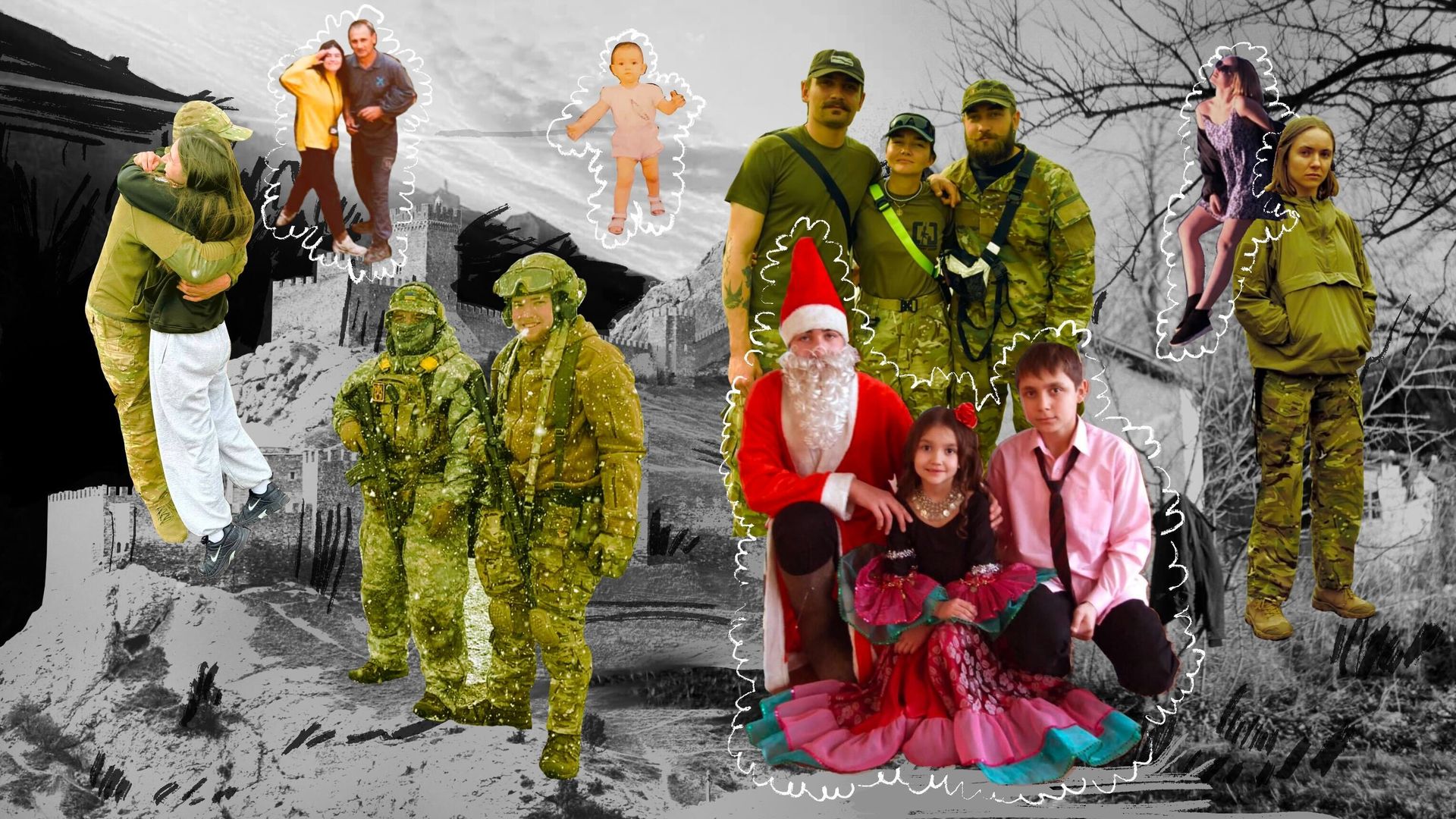Across occupied Ukraine, Russia has caused a devastating water crisis it cannot fix

People queue for a water distribution truck in Mariupol, Donetsk Oblast, Aug. 21. (Mariupol Seichas/Telegram)
Editor’s Note: The identities of people living in Russian-occupied territory have been withheld for security reasons.
All across the Russian-occupied Ukrainian land, Moscow is struggling to provide one of the most basic needs of the very people it claims to have "liberated" — water.
Years of neglect and war damage have left Russian-occupied areas of Luhansk and Donetsk oblasts with barely functioning infrastructure, while in the more recently occupied areas of Kherson and Zaporizhzhia oblasts, the destruction of the Kahovka Dam by Russian forces in June 2023 has left reservoirs nearly empty.
In the occupied Crimean Peninsula, partially fed by those same reservoirs, water shortages are looming after a second year of drought.
"It seems that people are deliberately being kept in a state of survival so that they are busy queuing for water and not thinking about politics, resistance, or protests," a Yellow Ribbon activist living in the occupied territories told the Kyiv Independent.
The ever-worsening crisis comes as Russian President Vladimir Putin demands even more Ukrainian territory as part of any U.S.-brokered peace deal, with U.S. President Donald Trump reportedly being on board with handing Moscow full control of the partially occupied Luhansk and Donetsk oblasts.

Yet the water shortages are largely a result of Russian aggression against Ukraine and despite acknowledging their existence, the Kremlin has not taken adequate steps to fix them.
It is still possible to buy bottled drinking water in shops in the occupied territories, but water prices rise on a daily basis due to surging demand. The cheaper option — boiling and purifying tap water — is no longer an option for many.
"Because the water that comes out of the tap is yellow, smelly, and bad, we buy drinking water, but it is not cheap," a woman from Luhansk told the Kyiv Independent.
Donetsk Oblast
The problems are particularly acute in areas of Donetsk and Luhansk oblasts that Russia has occupied since 2014.
"The problem with water is so severe, it’s all you can think about from morning till night," a female member of the Zla Mavka partisan group who lives in the city of Donetsk, told the Kyiv Independent.
"In Donetsk, in the Kirovsky district, we’ve been almost completely without water. Before, at least a thin trickle would come through for half an hour, but now sometimes the tap stays dry all day long," she added.
Putin himself is aware of the issue — in a meeting earlier this month with Denis Pushilin, the head of the Russian illegal occupation administration in Donetsk Oblast, he discussed the "crisis situation" and supported a reduction in water prices.
Problems with the water supply in Donetsk began at the start of Russian occupation in 2014 when supplies were rationed and only turned on according to schedule, which is usually unreliable and continues to this day.
"What kind of schedule is it when your children don't even have drinking water?" the Zla Mavka member said.
Russia's full-scale invasion of Ukraine has only exacerbated the crisis.
"From 2014 to 2022, water still flowed from Ukrainian territory via the Seversky Donets–Donbas Canal," Elina Beketova, a non-resident fellow with the Center for European Policy Analysis (CEPA)'s Democratic Resilience Program, told the Kyiv Independent.
"During the 2022 invasion, Russia destroyed key filtration stations, dams, and the canal. Their attempt to fix it with a new Don–Donbas pipeline failed — it can’t deliver enough water."

The current situation is so acute that children in the occupied territories have taken to recording videos appealing directly to Putin which are then posted on social media.
"We fill plastic bottles and cans with water in the bathroom because we never know when it will be available again," the woman from Donetsk said.
"And this is drinking water, which then has to be filtered and boiled to be sure that we won't get poisoned."
Luhansk Oblast
Those living in neighboring Luhansk Oblast have also grown used to water shortages.
"When the fighting started, the water was cut off for three months. It was a real disaster," the woman from Luhansk told the Kyiv Independent. She is now in Ukraine-controlled territory, but her parents still live under occupation in Luhansk.
"My parents, who are elderly, went to a church to get water in 2014. There was a well on its territory. It was quite a distance away, so they would carry full water containers on carts or in their arms," she added.
In the years since, the problem has only worsened, with Beketova saying that only around 2.5% of the water network in Luhansk Oblast left usable after "years of neglect and damage from fighting."
The woman from Luhansk said that it is now impossible to drink tap water because of its quality, describing it as "poison." She has heard rumors that it might have come from flooded mines.
"Some people I know installed a filter for tap water. They say that the filter breaks down after about a month. It gets completely clogged with rust, metals, and limescale," she said.
The Yellow Ribbon activist said that Russian authorities "simply don't care” about people living under occupation.
"The problem is widespread, but even the smallest steps that could alleviate the situation are not being taken," they said.
"In Donetsk, utility workers arrive when called, take photos for their report, and disappear. Russia is spending money on war, not on improving people's lives."
Kherson and Zaporizhzhia oblasts
In the south of Ukraine, in areas of Kherson and Zaporizhzhia oblasts that were occupied after 2022, the destruction of the Kahovka Dam by Russian forces in June 2023 has been the main cause of water shortages.
Serhii Danylov, a deputy head of the Association of Middle East Studies who also focuses on Kherson Oblast, said that Kakhovka Reservoir was a crucial source of water in the area.
"During the (partial occupation of Kherson), the (Russian military) behaved barbarically and irrationally and they destroyed the pumping stations that lifted water from the Kakhovka Reservoir to the main canals," he said.
"As far as I know, there is currently a small amount of water in the Kakhovka Reservoir, but it is simply standing there. The entire system of main and branch canals of the North Crimean Canal has dried up."
"Even if we imagine that water will appear now, it is impossible to restore the canals — they need to be built from scratch," he added.
When there was a fire in the village of Kairy, in Russian-occupied part of Kherson Oblast, there were only seven buckets of water available on the entire street, according to a Yellow Ribbon report on July 8.

A resident from the Russian-occupied Kahovka district told Danylov that "all the fruit trees are dry" and that "in the villages, people grow some vegetables, but only for themselves."
Dry weather is only exacerbating the problem. "It has not rained in Skadovsk (a city in the southern part of Kherson Oblast) for about a month and a half," Danylov added.
He added that the situation would be far worse if it wasn't for the fact that so many people left.
A recent Kyiv Independent report documented how Russia is turning the parts of Ukraine it occupies into a giant military base and a potential launch pad for future aggression, and the actions of the Russian military are yet another factor in the deepening water crisis.
"While setting up their field base (in Russian-occupied Berdiansk, Zaporizhzhia Oblast), they drove heavy equipment into the water pipeline's security zone, puncturing the main pipe near the pumping station," Yellow Ribbon activists reported on May 4.
Crimea
Even in occupied Crimea, home to Russia's Black Sea Fleet and recipient of significant investment, water supplies are "on the verge of becoming critical," Danylov said.
This is in part due to a second year of drought, as well as the drying up of the North Crimean Canal which supplies the Crimean peninsula.

"In Crimea, water shortages existed before the annexation due to both technical and natural reasons," Beketova said.
After Russia illegally annexed the peninsula in 2014, Ukraine cut off access to the canal. It was temporarily restored when Russia partially occupied Kherson Oblast in 2022 but the water supply was short-lived.
"While they initially could have supplied water to the peninsula quickly, the destruction of the Kakhovka Dam and the lack of water inflow caused water problems to resume," Beketova said.
"According to local specialists, water levels in Crimea’s reservoirs dropped significantly this summer," she added.
"Rain… could help, but if it doesn’t, Crimea could face a severe water crisis by October."











